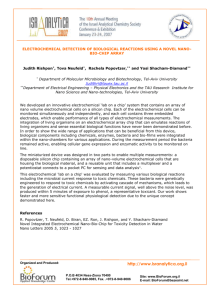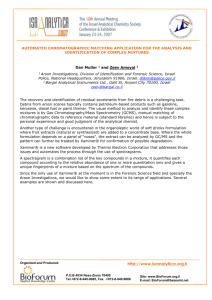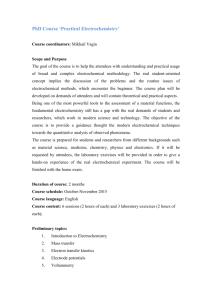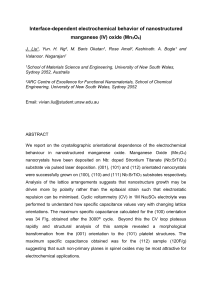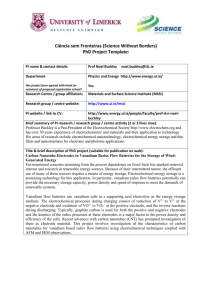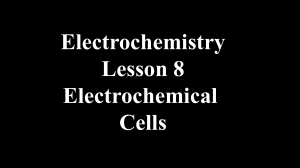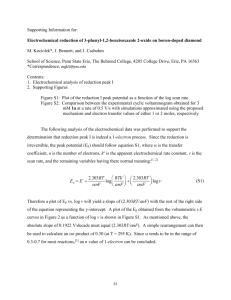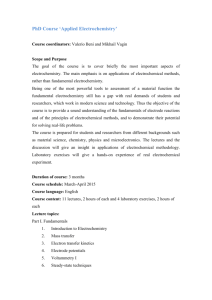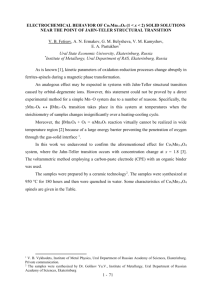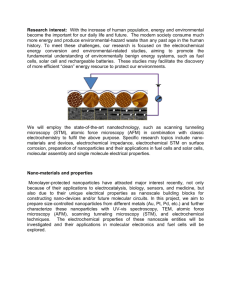electrochemical direct diagnosis of cancer and monitoring of anti
advertisement
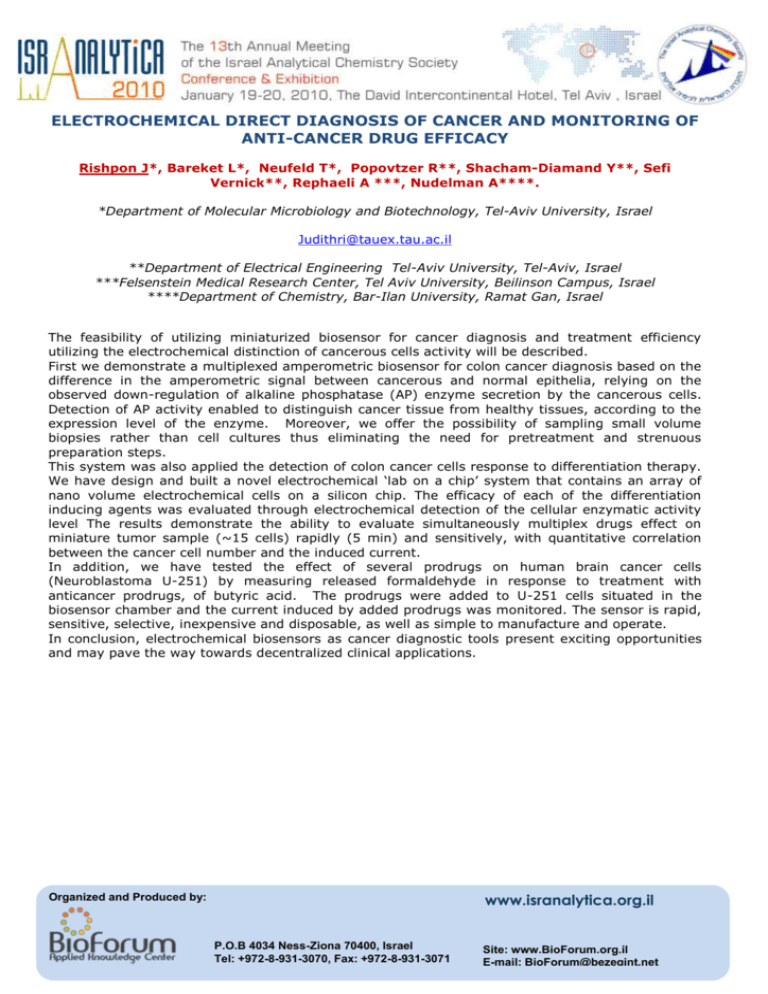
ELECTROCHEMICAL DIRECT DIAGNOSIS OF CANCER AND MONITORING OF ANTI-CANCER DRUG EFFICACY Rishpon J*, Bareket L*, Neufeld T*, Popovtzer R**, Shacham-Diamand Y**, Sefi Vernick**, Rephaeli A ***, Nudelman A****. *Department of Molecular Microbiology and Biotechnology, Tel-Aviv University, Israel Judithri@tauex.tau.ac.il **Department of Electrical Engineering Tel-Aviv University, Tel-Aviv, Israel ***Felsenstein Medical Research Center, Tel Aviv University, Beilinson Campus, Israel ****Department of Chemistry, Bar-Ilan University, Ramat Gan, Israel The feasibility of utilizing miniaturized biosensor for cancer diagnosis and treatment efficiency utilizing the electrochemical distinction of cancerous cells activity will be described. First we demonstrate a multiplexed amperometric biosensor for colon cancer diagnosis based on the difference in the amperometric signal between cancerous and normal epithelia, relying on the observed down-regulation of alkaline phosphatase (AP) enzyme secretion by the cancerous cells. Detection of AP activity enabled to distinguish cancer tissue from healthy tissues, according to the expression level of the enzyme. Moreover, we offer the possibility of sampling small volume biopsies rather than cell cultures thus eliminating the need for pretreatment and strenuous preparation steps. This system was also applied the detection of colon cancer cells response to differentiation therapy. We have design and built a novel electrochemical ‘lab on a chip’ system that contains an array of nano volume electrochemical cells on a silicon chip. The efficacy of each of the differentiation inducing agents was evaluated through electrochemical detection of the cellular enzymatic activity level The results demonstrate the ability to evaluate simultaneously multiplex drugs effect on miniature tumor sample (~15 cells) rapidly (5 min) and sensitively, with quantitative correlation between the cancer cell number and the induced current. In addition, we have tested the effect of several prodrugs on human brain cancer cells (Neuroblastoma U-251) by measuring released formaldehyde in response to treatment with anticancer prodrugs, of butyric acid. The prodrugs were added to U-251 cells situated in the biosensor chamber and the current induced by added prodrugs was monitored. The sensor is rapid, sensitive, selective, inexpensive and disposable, as well as simple to manufacture and operate. In conclusion, electrochemical biosensors as cancer diagnostic tools present exciting opportunities and may pave the way towards decentralized clinical applications. www.isranalytica.org.il Organized and Produced by: P.O.B 4034 Ness-Ziona 70400, Israel Tel: +972-8-931-3070, Fax: +972-8-931-3071 Site: www.BioForum.org.il E-mail: BioForum@bezeqint.net
